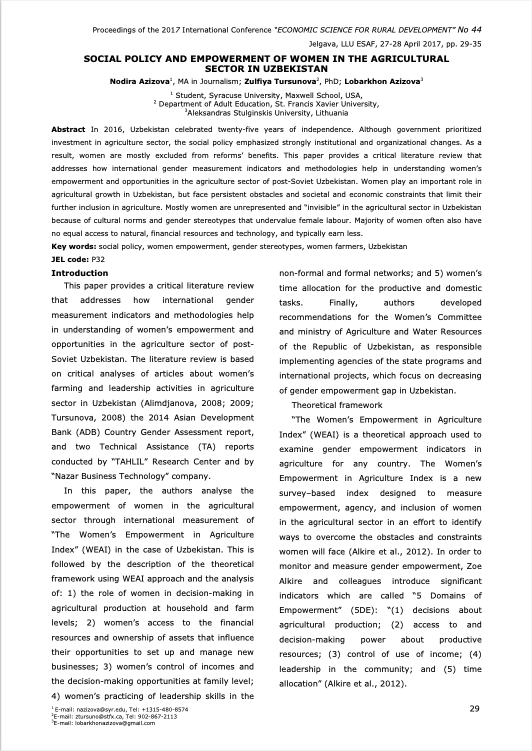Resource information
In 2016, Uzbekistan celebrated twenty-five years of independence. Although government prioritized investment in agriculture sector, the social policy emphasized strongly institutional and organizational changes. As a result, women are mostly excluded from reforms’ benefits. This paper provides a critical literature review that addresses how international gender measurement indicators and methodologies help in understanding women’s empowerment and opportunities in the agriculture sector of post-Soviet Uzbekistan. Women play an important role in agricultural growth in Uzbekistan, but face persistent obstacles and societal and economic constraints that limit their further inclusion in agriculture. Mostly women are unrepresented and “invisible” in the agricultural sector in Uzbekistan because of cultural norms and gender stereotypes that undervalue female labour. Majority of women often also have no equal access to natural, financial resources and technology, and typically earn less.

